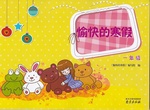题目内容
Surprisingly, no one knows how many children receive education in English hospitals, still less the content or quality of that education. Proper records are just not kept. We know that more than 850,000 children go through hospital each year, and that every child of school age has a legal right to continue to receive education while in hospital. We also know there is only one hospital teacher to every 1,000 children in hospital.
Little wonder the latest survey concludes that the extent and type of hospital teaching available differ a great deal across the country. It is found that half the hospitals in England which admit children have no teacher. A further quarter have only a part-time teacher. The special children’s hospitals in major cities do best; general hospitals in the country and holiday areas are worst off. From this survey, one can estimate that fewer than one in five children have some contact with a hospital teacher—and that contact may be as little as two hours a day. Most children interviewed were surprised to find a teacher in hospital at all. They had not been prepared for it by parents or their own school. If there was a teacher they were much more likely to read books and do math or number work; without a teacher they would only play games.
Reasons for hospital teaching range from preventing a child falling behind and maintaining the habit of school to keeping a child occupied, and the latter is often all the teacher can do. The position and influence of many teachers was summed up when parents referred to them as “the library lady” or just “the helper”. Children tend to rely on concerned school friends to keep in touch with school work. Several parents spoke of requests for work being ignored or refused by the school. Once back at school children rarely get extra teaching, and are told to catch up as best as they can.
Many short-stay child-patients catch up quickly. But schools do very little to ease the anxiety about falling behind expressed by many of the children interviewed.
【小题1】Which of the following statements is true?
| A.Every child in hospital receives some teaching. |
| B.Not enough is known about hospital teaching. |
| C.Hospital teaching is of poor quality. |
| D.The special children's hospitals are worst off. |
| A.hospital teaching across the country is similar |
| B.each hospital has at least one part-time teacher |
| C.all hospitals surveyed offer education to children |
| D.only one-fourth of the hospitals have a full-time teacher |
| A.not welcomed by the children and their parents | B.necessary |
| C.not welcomed by the hospitals | D.capable |
| A.hospital teachers | B.schoolmates | C.parents | D.school teachers |
| A.unfavorable towards children receiving education in hospitals |
| B.in favor of the present state of teaching in hospitals |
| C.unsatisfied with the present state of hospital teaching |
| D.satisfied with the results of the latest survey |
【小题1】B
【小题2】D
【小题3】B
【小题4】B
【小题5】C
解析

 愉快的寒假南京出版社系列答案
愉快的寒假南京出版社系列答案